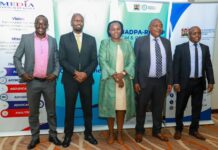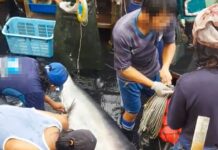By Pius Sawa
Dei, Uganda: Although beans are a major source of protein in the Great Lakes region of Africa, climate change has made them less reliable as a staple food crop due to prolonged or delayed rainfall and deteriorating soils. Beans also take a long time to cook, requiring a lot of fuel, wood or charcoal, water, and time.
Small pelagic fish are nutritious, easy to cook, and readily available, but they have been neglected and regarded as food for the poor or raw materials for animal feed. Eating these fish can save trees, water, and time required to cook the same amount of beans. This is the core of a four-year research project that is now ready to be replicated elsewhere in Africa.
Lake Victoria and Lake Albert are valuable sources of fish, clean water, and scientific research. Their biodiversity is directly linked to the livelihoods of the communities that surround them. However, for over a decade, the native fisheries of these lakes have collapsed, the diversity of fish species has decreased, and the environment of the lakes has deteriorated due to human activities such as pollution, industrial waste, and siltation caused by burning and deforestation.

Fish processing is a source of carbon emissions into the atmosphere because fishmongers use wood fuel and charcoal to smoke fish, which leads to deforestation. Reports indicate that the population of large fish is declining in the oceans due to climate change and overfishing, unlike the people of small fish species.
In December 2019. Lots of dead Nile Perch were seen washed up on the Lake Victoria shores in Kenya and Uganda. Experts said low oxygen levels in the Lake caused the deaths.
The Ministry of Agriculture in Uganda described the deaths as a usual phenomenon caused by hypoxia, a condition which causes water to mix, thereby reducing oxygen levels in the Lake.

In 2019, the International Development Research Center (IDRC) of Canada, together with the Australian, International Agricultural Research (ACIAR)through their joint programme, Cultivate Africa’s Future Fund (CultiAF) gave research grants to a group of researchers to work with other players in the fish value chain to implement the NutriFish project. The project has successfully promoted the consumption of small pelagic fish, which were previously considered food for the poor or raw materials for animal feed.
The collaboration between Makerere University’s Department of Zoology, Entomology and Fisheries Sciences, the National Fisheries Resources Research Institute (NAFIRRI), Nutreal Uganda Limited, and McGill University in Canada was intended to discover methods to reduce losses, improve product quality, safety, and accessibility, and increase the distribution of the nutritional value of small pelagic fish to vulnerable groups who cannot afford expensive commercial fish but who are in desperate need of high-quality nutritious diets.

Using innovations like solar tent dryers and improved data collection technology, the consumption of these small fish has increased by 20%-30%.
Solar tent dryer is hygienic and climate-friendly as compared to open sub-drying.Fishmongers from DRC, come to Uganda to buy and smoke fish on Lake Albert. They use charcoal which emits carbon and results in tree cutting.














